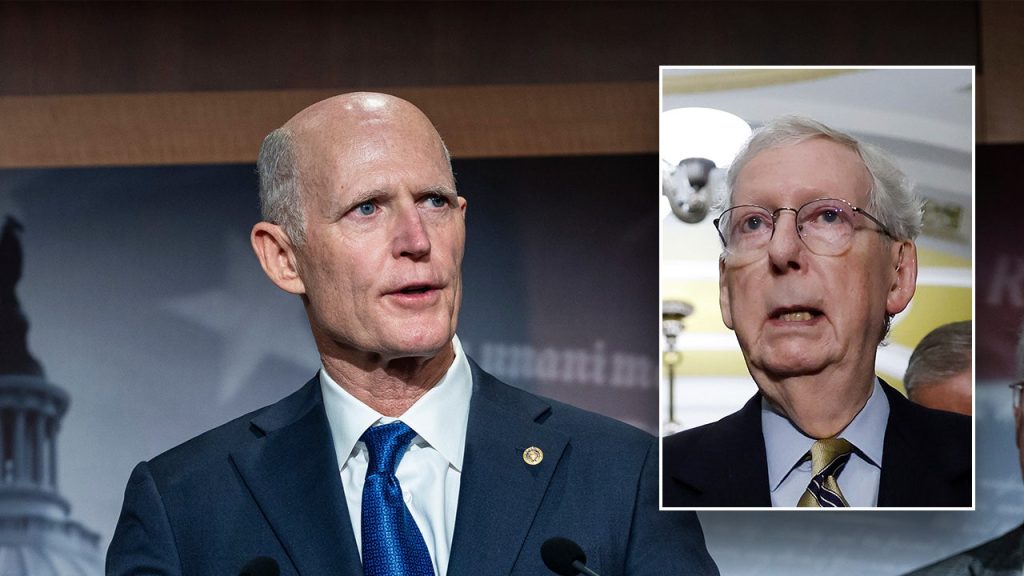Sen. Rick Scott, R-Fla., has officially announced his bid for Republican leader in the next Senate, joining Senate Minority Whip John Thune, R-S.D., and Sen. John Cornyn, R-TX, in the race to replace outgoing Senate Republican Leader Mitch McConnell. Scott stressed the need for transparency among conference members, criticizing the backroom deals and lack of committee process in legislation. He expressed frustration with trillion-dollar spending bills voted on without consideration for amendments and the lack of collaboration with House Republicans, leading to division within the party.
McConnell has served as Republican leader since 2007 and announced in February his plan to step down, prompting Scott to challenge him during his re-election bid in 2022. He gathered 10 votes to McConnell’s 37 at the time, signaling discontent with the status quo and a desire for change among Senate Republicans. Following McConnell’s announcement, Scott expressed the need for new leadership in the Senate that represents voters and the issues they were sent to fight for. The November match-up for Republican leader presents an opportunity for the winner to shape the party’s priorities, particularly if the Republicans secure the majority in the 2024 elections.
Scott emphasized the need for a shift in leadership to address the significant challenges facing the country and align Senate Republicans with the aspirations of voters. He accused the GOP of passing legislation supported by Democrats, while only a quarter of the Republican Conference approves, resulting in a united Democratic front and a divided Republican one. Scott’s campaign for leader was first reported by the Wall Street Journal, highlighting his push for transparency and a return to regular order in the legislative process, including committee consideration and the opportunity for amendment review.
The race for Republican leader in the Senate has become crowded, with Thune, Cornyn, and Scott vying for the position left vacant by McConnell. Scott’s efforts to challenge the status quo and call for change within the party have resonated with some colleagues, as evidenced by the double-digit vote he received against McConnell in 2022. As the competition heats up ahead of the November decision, Republicans will have to weigh their options for leadership in a pivotal time for the party’s direction, both in the Senate and within the broader political landscape.
In his bid for Senate Republican leader, Scott is positioning himself as a candidate for change and a departure from the leadership style of McConnell. He has criticized the secrecy and lack of input within the GOP conference, pushing for a more transparent and collaborative approach to legislation. By challenging the norms and advocating for accountability and consistency in the legislative process, Scott is seeking to rally support among Senate Republicans and reshape the party’s priorities to better reflect the interests of voters and address the pressing issues facing the nation.


